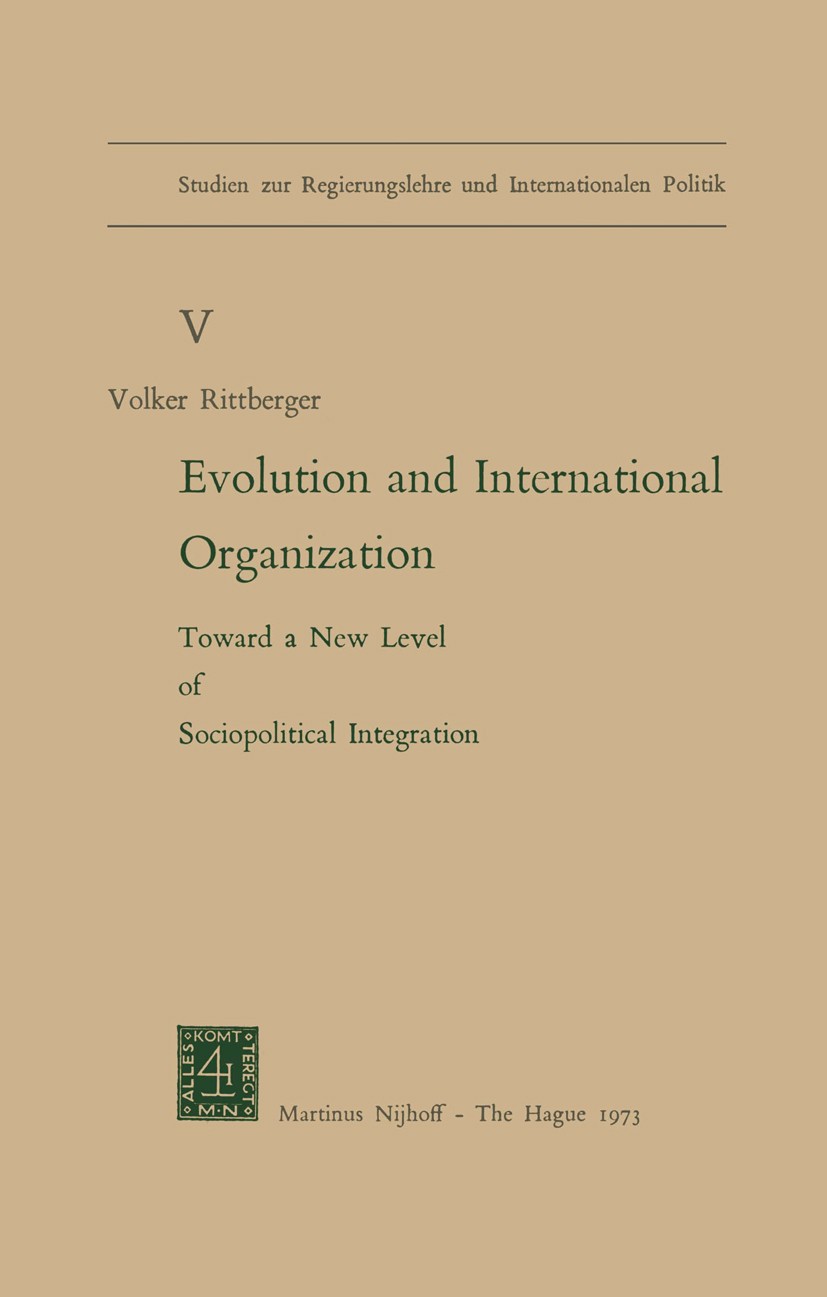| 書(shū)目名稱 | Evolution and International Organization | | 副標(biāo)題 | Toward a New Level o | | 編輯 | Volker Rittberger | | 視頻video | http://file.papertrans.cn/318/317675/317675.mp4 | | 叢書(shū)名稱 | Studien zur Regierungslehre und Internationalen Politik | | 圖書(shū)封面 |  | | 描述 | unlike the historical-descriptive or legalistic approaches still pervading the majority of publications on international organization, has an implicit (empirical-) theoretical orientation. As a concomitant development, Yalem notes an increasing methodological 6 sophistication among some students of international organization. However, except for some favorable comments on the evolving theory of international community formation, Yalem does not evaluate the contribution of the empirical-theory-cum- methodology literature to the study of international organization. More recently, Riggs and his associates (1970) and Alger (1960-70; 1970) have taken it upon themselves to do just this. The analysis of the impact of bthavioralism on the study of the United Nations system by Robert Riggs and his associates is a rather devastating indictment. Though demonstrating a concern to present balanced and qualified conclusions from their pemsal of the relevant literature, they summarize their assessment in the following statement: Behavioral research has probably been the most disappointing in the area of its central concern, that of theory-building. The grand theories tend to be heuristic in natur | | 出版日期 | Book 1973 | | 關(guān)鍵詞 | Integration; building; evolution; growth; opera; organ; organization | | 版次 | 1 | | doi | https://doi.org/10.1007/978-94-010-2001-5 | | isbn_softcover | 978-90-247-1563-3 | | isbn_ebook | 978-94-010-2001-5 | | copyright | Martinus Nijhoff, The Hague, Netherlands 1973 |
The information of publication is updating

|
|
 |Archiver|手機(jī)版|小黑屋|
派博傳思國(guó)際
( 京公網(wǎng)安備110108008328)
GMT+8, 2025-10-26 22:16
|Archiver|手機(jī)版|小黑屋|
派博傳思國(guó)際
( 京公網(wǎng)安備110108008328)
GMT+8, 2025-10-26 22:16


